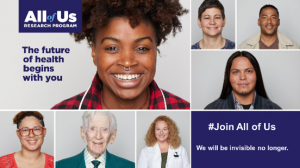Marginalized Populations
Marginalized communities are those excluded from mainstream social, economic, educational, and/or cultural life. Examples of marginalized populations include, but are not limited to, groups excluded due to race, age, physical ability, or language. Marginalization occurs due to unequal power relationships between social groups (Baah et al, 2019).
At the Weitzman Institute, we recognize both the responsibility and opportunity we have to conduct research on topics that have been under-studied in marginalized communities. Moreover, inherent in this order is ensuring that we adopt and apply research methodologies that are both rigorous and equitable, and thereby see and treat marginalized patients, families, and populations as true partners in this work.
The Weitzman Institute currently serves as the host site for two PhD candidates, Kelly Gagnon from the University of Pittsburgh, and Monika Doshi from the University of Michigan, whose dissertations focus on marginalized populations. Read more about their dissertation efforts in the subsections here.
Underrepresented Groups in Biomedical Research
All Of Us Research Program
The All of Us Research Program (AoURP) is a national effort to change the future of health for poor and marginalized populations. As one component of the Precision Medicine Initiative, the AoURP will accelerate health research and medical breakthroughs by increasing the diversity of people participating in biomedical research. Led by the National Institutes of Health (NIH), the AoURP plans to enroll 1 million or more people to build a resource representing the diversity of the US. With an emphasis on communities historically underrepresented in biomedical research (UBR), the AoURP will allow medical care to evolve from the “one size fits all” model. The goal is to learn how lifestyle, environment and biology affect individual health outcomes, and how we can transform care to help future generations.


At CHC we are actively enrolling patients 18 years or older, regardless of their health status, while contributing to developing best practices for engaging and retaining underrepresented patients in longitudinal research studies. CHC participants, 1467 enrolled over the past 3 years, contribute diversity with race, ethnicity, age, gender, socioeconomic, and educational attainment status. Our work with the AoURP is laying the foundation for patient-centered care for poor and marginalized populations. Some of our current projects include investigating motivations and barriers for underrepresented patient’s participation in research, measuring access and use of digital health technologies, and integrating genetics in primary care. Learn more about how you can change the future of health care.

Sexual And Gender Minorities
Under the guidance of Weitzman Senior Faculty member Marwan Haddad, MD, MPH, Medical Director of the Center for Key Populations at Community Health Center, Inc., part of our research, evaluation, and programmatic activities focuses on improving the health of sexual and gender minorities.
Our work in this area includes ongoing examination of the health disparities that sexual and gender minority patients face, and the implementation of practice changes to improve the primary care they receive.
Featured Work
PhD Candidate Kelly Gagnon is developing a dissertation, “An Implementation Science Study to Understand Sexual History Screening and PrEP Services at an FQHC.”
Her dissertation studies will address these gaps using cross-sectional, retrospective quantitative data and primary qualitative data from a multi-site Federally Qualified Health Center. Specifically, these studies aim to:
1) Examine how the sociodemographics of patients and primary care providers (PCPs) are associated with sexual history (SH) documentation at the last preventive care visit,
2) Test (1) the independent effects of documented SHS and utilization of a PrEP Navigator on PrEP refills and (2) whether utilization of the PrEP Navigator moderates the relationship between documented SHS and PrEP prescription refills, and
3) Qualitatively explore the facilitators and barriers to SHS and referral to PrEP Navigators from the perspectives of PCPs. Qualitative interviews will be conducted with 40 PCPs to understand the facilitators and barriers to SHS during preventive care visits and explore PCPs’ perspectives on the relationship between SHS and PrEP services.
